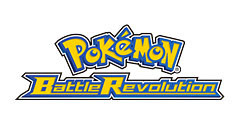History
The console was conceived in
2001, as the
Nintendo GameCube was first seeing release. According to an interview with
Shigeru Miyamoto, the concept involved focusing on a new form of player interaction. "The consensus was that power isn't everything for a console. Too many powerful consoles can't coexist. It's like having only ferocious dinosaurs. They might fight and hasten their own extinction."
Two years later,
engineers and
designers were brought together to further develop the concept. By 2005, the controller interface had taken form, but a public showing at that year's
E3 was withdrawn. Miyamoto stated that "we had some troubleshooting to do. So we decided not to reveal the controller and instead we displayed just the console."
Satoru Iwata later unveiled and demonstrated the
Wii Remote at the September
Tokyo Game Show.
The
Nintendo DS is stated to have influenced the Wii design. Designer Ken'ichiro Ashida noted "We had the DS on our minds as we worked on the Wii. We thought about copying the DS's touch-panel interface and even came up with a prototype." The idea was eventually rejected, with the notion that the two gaming systems would be identical. Miyamoto also expressed that "if the DS had flopped, we might have taken the Wii back to the drawing board."
Name
The console was known by the
code name of "Revolution" until
April 27,
2006, immediately prior to E3. According to the Nintendo Style Guide, the name "is simply Wii, not Nintendo Wii." This means it is the first home console Nintendo has marketed outside of
Japan without the company name featured in its trademark. While "Wiis" is a commonly used
pluralization of the console, Nintendo has stated that the official plural form is "Wii systems" or "Wii consoles."Nintendo spells "Wii" with two lower-case "i" characters meant to resemble two people standing side by side, representing players gathering together, as well as to represent the console's controllers. The company has given many reasons for this choice of name since the announcement; however, the most well known is:
“
Wii sounds like 'we', which emphasizes that the console is for everyone. Wii can easily be remembered by people around the world, no matter what language they speak. No confusion. No need to abbreviate. Just Wii.
”
Despite Nintendo's justification for the name, some
game developers and members of the press initially reacted negatively towards the change. They preferred "Revolution" over "Wii" and expressed fear "that the name would convey a continued sense of 'kidiness' to the console."The
BBC reported the day after the name was announced that "a long list of puerile jokes, based on the name," had appeared on the Internet.
Reggie Fils-Aime acknowledged the initial reaction and further explained the change:
“
Revolution as a name is not ideal; it's long, and in some cultures, it's hard to pronounce. So we wanted something that was short, to the point, easy to pronounce, and distinctive. That's how 'Wii,' as a console name, was created.
”
Nintendo defended its choice of "Wii" over "Revolution" and responded to critics of the name by stating: "live with it, sleep with it, eat with it, move along with it."
Launch
Main article:
Wii launchOn
September 14,
2006, Nintendo announced release information for Japan,
North and
South America,
Australasia (Oceania),
Asia, and
Europe, including dates, prices, and projected unit distribution numbers. At an earlier policy briefing, Nintendo revealed plans to release 6 million console units and 17 million software units during the
fiscal year ending
March 31,
2007.This included the 4 million or more console units they expected to ship by the end of the
2006 calendar year. It was announced that the majority of the 2006 shipments would be allotted to the Americas]and that 33 titles would be available in the 2006 launch window. As reported, the
United Kingdom suffered a large shortage of console units as many high-street and online stores were unable to fulfill all preorders when it was released on
December 8,
2006. As of March 2007, some UK stores still had a shortage of consoles.
Nintendo announced that they would release their console in
South Korea by the end of 2007.

 Pokémon Battle Revolution takes place on an island called Pokétopia, where your goal is to battle your way through challenging Colosseums to become the Pokétopia Master. Pokémon Battle Revolution is the first Wii / Nintendo DS linked title, which means that you can transfer your Pokémon from Pokémon Diamond and Pokémon Pearl wirelessly and watch them battle in full 3D!
Pokémon Battle Revolution takes place on an island called Pokétopia, where your goal is to battle your way through challenging Colosseums to become the Pokétopia Master. Pokémon Battle Revolution is the first Wii / Nintendo DS linked title, which means that you can transfer your Pokémon from Pokémon Diamond and Pokémon Pearl wirelessly and watch them battle in full 3D! 



































